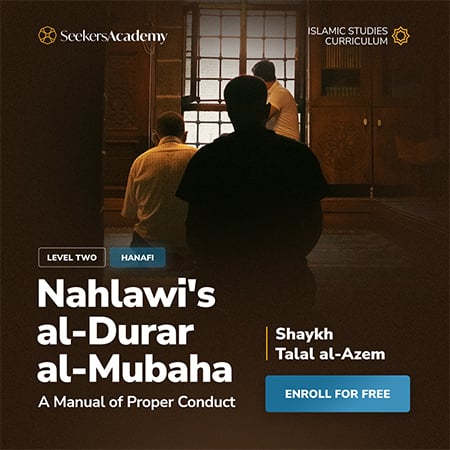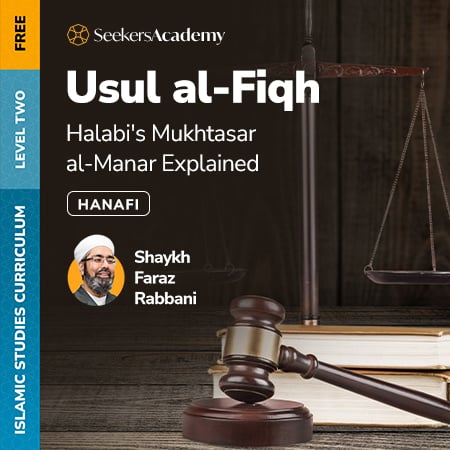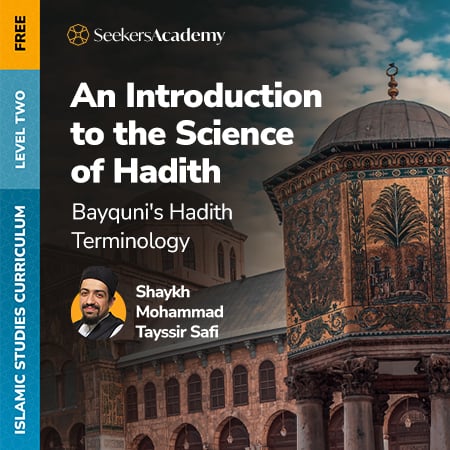
This is a Level Two elective course in the Islamic Studies Curriculum. It is based on Imam Mawsili's great primer on Hanafi fiqh, al-Mukhtar, and its commentary, al-Ikhtiyar li-Ta`lil Masa’il al-Mukhtar.
This expansive course will cover all the chapters on worship in al-Mukhtar. The students will gain a necessary and detailed understanding of Islamic Jurisprudence (fiqh) related to the acts of worship, i.e. prayer, zakat, fasting, and the pilgrimage.
This course is intended for seekers of knowledge and is an excellent preparation for the study of more advanced texts in jurisprudence, such as Imam Marghinani’s al-Hidaya. It will help students gain a deeper understanding of worship according to the Hanafi school of jurisprudence.
- Teacher: Shaykh Faraz Rabbani
Imam Mawsuli’s influential book is one of the four relied upon primers of the Hanafi school of law, which summarize the original positions of Imam Abu Hanifa - the school’s founder - may Allah have mercy on him, and the transmitted positions of the school after him. Imam Mawsuli’s commentary focuses on the differences of opinion within the Hanafi School and the legal discussion between Imam Abu Hanifa and his two students.
The English lessons are based on al-Ikhtiyar and other leading Hanafi works. An English translation of al-Mukhtar will be provided, along with the full Arabic text of Imam Mawsuli’s own commentary: al-Ikhtiyar li-Ta`lil Masa’il al-Mukhtar.
- This course is for teenagers and adults
- It is particularly beneficial for students of Islamic law
- It is a Level Two course. In order to successfully complete this course, students should
- first take On Worship (Purification, Prayer, Fasting, Zakat, and Hajj): Shurunbulali’s Ascent to Felicity or equivalent.
- This course can also be taken by anyone who is interested in learning more about the rulings of purification, prayer, fasting, zakat, and Hajj.
Understand and summarize the Hanafi school’s positions on:
- Water, wells, and dry ablution.
- Menstruation, bleeding, their types, and rulings.
- Prayer, its integrals and conditions.
- Prayer in congregation and supererogatory prayer.
- Actions to avoid in prayer, forgetfulness, tarawih.
- The prayer of the sick and the traveler.
- The Friday and Eid prayers, the prayer of fear, and prayer at the Ka’ba.
- The funeral prayer and burial practices.
- Zakat and its rulings.
- Fasting and its rulings.
- The Hajj and its rulings.


